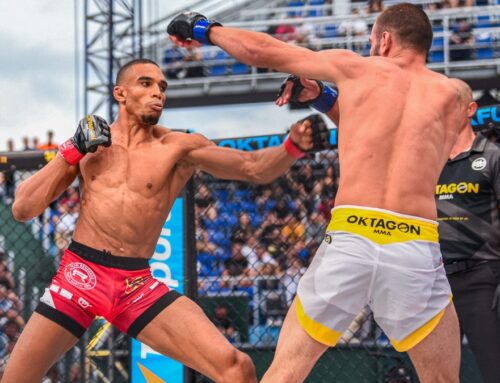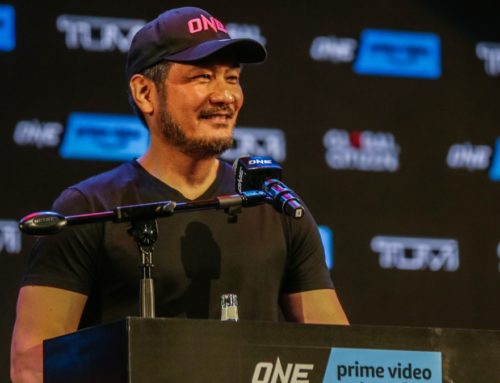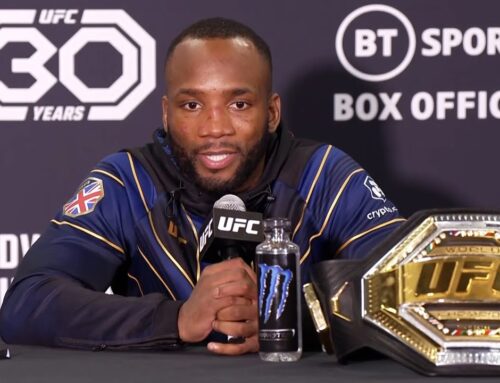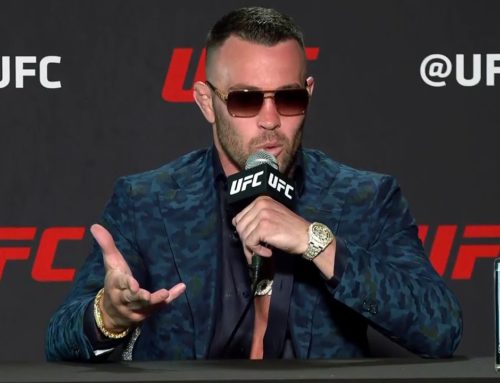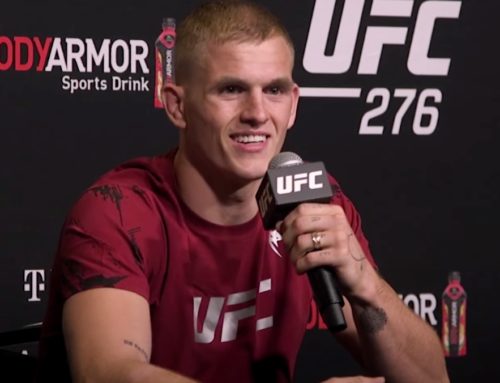I have to hand it to Mike Bisping: he has truly become an ambassador for mixed martial arts, the UFC and British sport. I’ve known the man from Clitheroe, England, for just about 10 years now, and I’ve watched his highest ups and his lowest downs in the UFC, charting that rise and fall in detail.
We’ve had our ups and downs, too, on a personal level, perhaps more than any other fighter I’ve covered in 25 years.
Two things here: first, it’s the bane of a journalist’s life in fight sports that getting close to fighters, getting to know them, their families, the aspects of their lives which are not for publication often make professional life harder. As a writer and broadcaster, trust with fighters is huge. Sometimes, we know too much, though. You’re invested. It is an lesson we all have as writers: objectivity.
But human nature being what it is, relationships develop. Mike is an emotionally honest man, and has balled me out on Twitter a couple of times. Once after I critiqued – as he saw it – his performance against Cung Le, and the other time after UFC 100 when he was knocked out by Dan Henderson. I wrote he had been outclassed – and we didn’t speak for nine months. So a tip for young journalists: try not to grow too close to your subjects.
Secondly, being honest in your viewpoint is important. Not in a crass way, in which we often describe people who do so as ‘keyboard warriors’. But in the manner of being prepared to say to a fighter – to his face – what you will write.
But Bisping – the greatest MMA export to come out of the UK – has grown to a new level in my opinion. Apart from understanding the nature of promoting fights, of being an analyst, and having gone from hero, to heel, to villain, to MMA personality (and still a very formidable fighter, Mike, if you’re reading), he is now being used by a company in corporate seminars.
He takes very light training seminars and then talks about what it takes to be successful in his job and how that can cross over into working lives. He explains the preparation, dedication and work ethic that’s gone into making him the man he is now.
From the UFC’s UK poster boy, through ‘Spitgate’ in Sydney, to SoCal and Fox Sports analyst – all the while as a great fighter – has been some journey. Let’s be honest, being Clitheroe’s greatest DJ, tiling or working in a slaughterhouse would not have taken Bisping to being the witty, articulate character we see today.
“Talking about the sacrifices you made, the changes you made, how you bettered yourself. That can cross over into many di fferent realms,” he once told me.
Ambassadorially, moreover, he has really progressed. I asked him recently about Tyson Fury, and the controversial views that got the boxing heavyweight champion pilloried in the press late last year. Bisping has learnt, rightly, that no matter how intense the sledging, if you keep it inside fight sports, it can be controversial but doesn’t open you up to butchery from the mainstream; i.e. stay away from politics and religion.
“If you’re fighting an opponent, it’s the art of war,” he told me.
“You’re trying to get into their head, you’re trying to gain an advantage. That’s all well and good. But you don’t need to start talking about your beliefs and views on homosexuality and religion and politics. It has no place in the fight game. Leave that outside of it.
“There’s terrible things going on around the world right now with ISIS and even that should be left out of it. Don’t talk about any of that. This is the fight game. Let’s recognize it for what it is – it’s two men stepping into an Octagon because they choose to. Nobody is changing the world. Let’s leave that to the world’s leaders. We should just focus on our opponents.”
Bisping may never have the UFC belt around his waist. But he has become a champion of MMA.
This column was first published in the April ’16 edition of Fighters Only.

